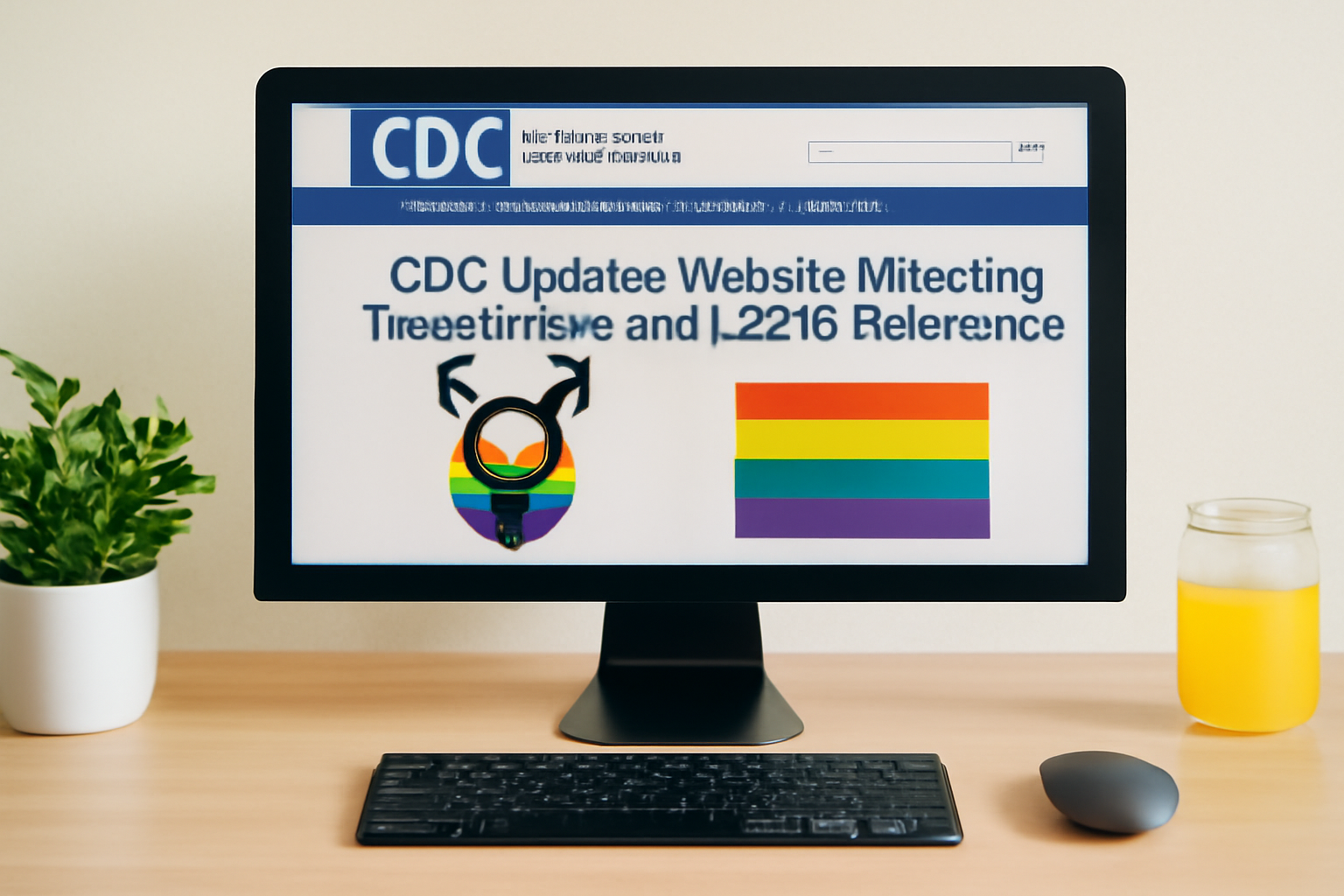
In a controversial move, the Centers for Disease Control and Prevention (CDC) has recently updated its website, leading to the removal and alteration of information related to transgender individuals, gender identity, and related health equity issues. This decision is part of a broader compliance effort with a series of executive orders that have significant implications for the representation of gender diversity within federal health communications.
Impact on Transgender Health Resources
Among the affected resources are pages dedicated to HIV testing specifically for transgender people, as well as guides on supporting LGBTQ+ youth in healthcare settings. These pages were made unavailable following directives to align with the executive orders, which emphasize traditional gender roles by recognizing only male and female sexes.
The executive orders in question mandate the cessation of federal programs perceived to promote or reflect gender ideology, a term broadly used to describe awareness and inclusivity of diverse gender identities. According to internal communications, CDC employees were instructed to ensure the removal of any public-facing media that could be seen as endorsing this ideology by a set deadline.
Challenges Faced by CDC Staff
In response to these directives, various sections of the CDC’s online resources were taken down, including pages that listed vaccinations recommended by the CDC’s advisory committee. Notably, these pages included the mpox vaccine, known to be particularly relevant for certain LGBTQ+ populations. Although some of these resources have since been restored, the references to the mpox vaccine and other LGBTQ+ inclusive materials remain absent.
This situation has created a significant challenge for researchers and public health officials who rely on comprehensive data to address health disparities. The removal of these pages is seen as a setback for ongoing efforts to provide targeted healthcare information and support to diverse communities.
Implications for Scientific Research
The executive orders also extend to scientific research, with CDC scientists instructed to retract or revise publications that include certain terms, such as "gender," "transgender," and "LGBT." Researchers were advised to remove these terms from manuscripts, whether they were in the process of being revised or already accepted for publication but not yet posted online.
This directive has raised concerns about the potential impact on public health research and the breadth of demographic data included in health studies. The scientific community relies on precise language and robust data to address health inequalities and deliver informed public health interventions.
Concerns and Criticism
The changes have been met with criticism from advocacy groups and public health experts who highlight the importance of inclusive language and comprehensive data in addressing the unique health needs of transgender and LGBTQ+ populations. Critics argue that the removal of these resources could hinder efforts to combat health disparities and provide equitable healthcare services.
Moreover, the broader implications of the executive orders suggest a shift away from recognizing the diversity of gender identities within federal health policy. This move may have long-term effects on how health issues are communicated and addressed at the national level.
The Path Forward
As the impact of these changes continues to unfold, it remains to be seen how the CDC will balance compliance with executive directives and the need to support diverse communities through inclusive and evidence-based health communications. Stakeholders are calling for a reevaluation of these policies to ensure that public health efforts are inclusive and reflective of the diversity within the population.
In the meantime, advocacy groups are mobilizing to provide alternative resources and support systems for transgender and LGBTQ+ individuals affected by the changes. These efforts underscore the critical role of community and advocacy in advancing public health goals and promoting equity for all individuals, regardless of gender identity.
The discussion surrounding these changes at the CDC highlights the ongoing dialogue about gender diversity, inclusivity, and public health. As the situation evolves, it serves as a reminder of the importance of maintaining a commitment to equitable healthcare access and representation for all communities.
Related Posts
Finding a Community in Unexpected Places: A Personal Journey Through Texas
On my latest business trip down in Texas, it felt like everything that could go wrong did. It all started with my flight from Los Angeles, which got hit with major delays. I ended up missing my connecting flight in Dallas, and it took a full day before I finally made it all weary and worn out in McAllen. I tried chalking it up as one those typical travel mishaps, but I couldn't help but wonder if [...]
Jonathan Bailey's 'Chic Glasses' Steal the Spotlight in Jurassic World Rebirth
Jonathan Bailey's fashion choice dazzles in Jurassic World Rebirth Fans can't wait any longer—the latest installment in our beloved Jurassic franchise, *Jurassic World Rebirth*, hits theaters soon. And guess what? It's not just about dinosaurs this time. Jonathan Bailey, whom we adore from *Bridgerton*, steps up as Dr. Henry Loomis, a charismatic paleontologist. But what's stealing his thunder? [...]
Martha Graham Cracker: A Night of Electrifying Drag Performance in Atlantic City
Experience a night like no other: Martha Graham Cracker's rock n' roll drag cabaret Get ready, because Martha Graham Cracker's about set Atlantic City's Anchor Rock Club on fire with her electrifying drag cabaret. With a voice that commands attention and a stage presence that's both vibrant and mesmerizing, she blends rock and roll with drag like nobody else. If you're itching a night jam-packed [...]